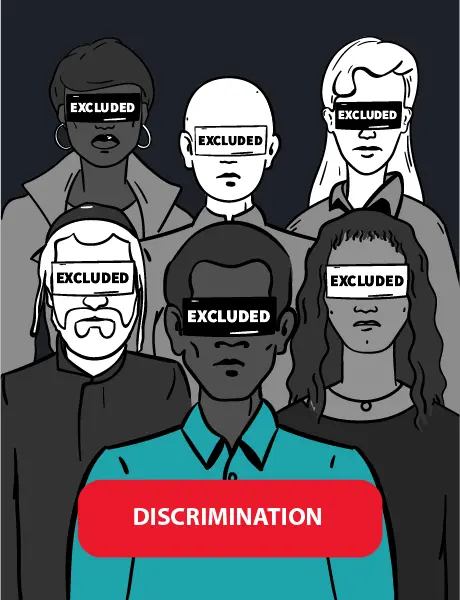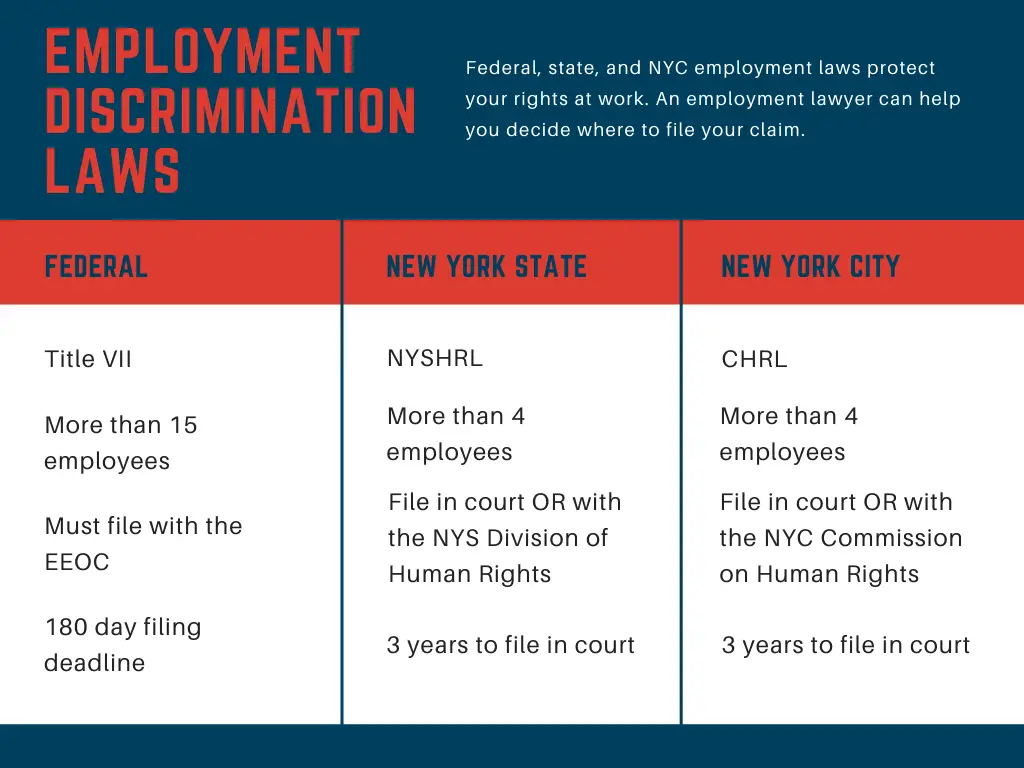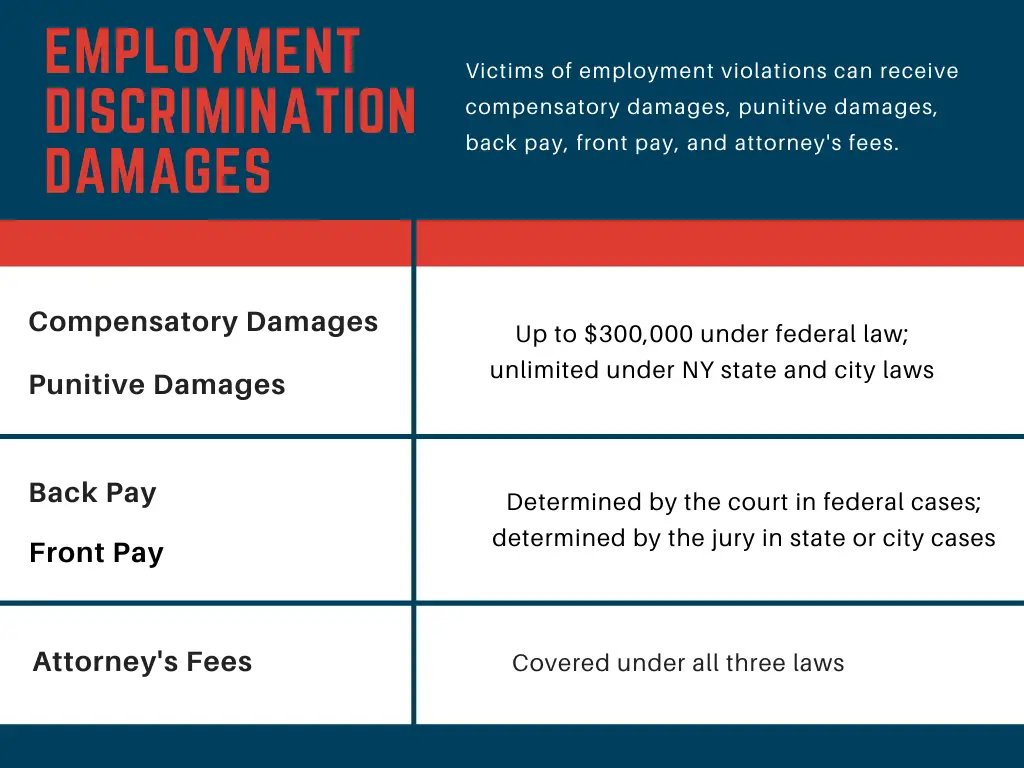Transgender Discrimination in the Workplace
Protect Your Rights with a New York Transgender Discrimination Lawyer
Have you experienced transgender discrimination at work? Discrimination because of your gender identity violates your rights.
Our guide walks through your rights under discrimination laws and how to prove transgender discrimination at work. If you experience transgender discrimination in the workplace, a lawyer can help.
Contact New York discrimination lawyer Charles Joseph for a free consultation to protect your rights. Charles Joseph’s firm has recovered more than $200 million for clients. Reach out today for a free, confidential consultation.
Know Your Rights – What Is Transgender Discrimination?
Transgender discrimination in the workplace means treating a job applicant or employee unfavorably because of that person’s gender expression, gender identity, or transgender status.
Transgender discrimination also includes treating an employee unfavorably because of the transgender status of a friend or family member.
It is illegal for an employer to make employment decisions based on your gender identity or transgender status.
Under New York State and New York City laws, employers cannot discriminate against transgender employees or potential hires. These New York laws offer stronger protections than federal discrimination laws.
Employees can be the victims of transgender discrimination even if they do not identify as transgender – the law protects against discrimination based on perceived transgender status.
New York transgender discrimination laws protect non-employees.
The law does not just protect employees. After October 11, 2019, New York State’s discrimination laws expanded to cover non-employees, such as domestic workers, independent contractors, consultants, vendors, subcontractors, and more.
A transgender discrimination lawyer can help you protect your rights.
Examples of Transgender Discrimination in the Workplace
Employment Decisions Cannot Discriminate against Transgender Employees
Making employment decisions – including hiring and firing – based on stereotypes about gender identity, gender expression, or transgender status violates the law.
Examples of Transgender Discrimination in the Workplace:
- A highly qualified job applicant has experience and excellent qualifications for a job. But the hiring manager asks the applicant if he is transgender. After refusing to answer, the hiring manager ends the interview and the job applicant does not receive a job offer.
- For over five years, an employee earned glowing performance reviews from their supervisor. When the supervisor learns that the employee plans to transition, the employee begins receiving unfounded negative reviews.
- An employee undergoes sex reassignment surgery, using the company’s insurance plan. At the end of the year, a supervisor announces that the employee will not receive a bonus because she already “cost the company too much money” by transitioning.
- A company announces plans to lay off several employees during a company reorganization. However, the company only fires two employees who both identify as transgender.
Failure to Promote Because of Gender Identity
New York transgender discrimination laws protect employees from not receiving promotions, including tenure, for discriminatory reasons.
Examples of Transgender Discrimination in the Workplace:
- A woman receives excellent performance reviews at her firm. However, the partners at the firm refuse to consider her for partnership because they believe she identifies as transgender.
- After working at a company for several years, including receiving high reviews, an employee announces their plan to transition. Immediately, the employee’s supervisor withholds a project that would put the employee on track for a promotion.
- A male employee applies for a promotion that would put him in a client-facing role. Their supervisor says it isn’t a good fit, because clients won’t respond well to a transgender person.
Discriminatory Differences in Pay Violate Transgender Discrimination Laws
The law protects you from differences in any form of compensation, including salary, overtime pay, bonuses, stock options, profit sharing, life insurance, and vacation or holiday pay that are based on your sexual orientation, gender identity, gender expression, or transgender status.
Examples of Transgender Discrimination in the Workplace:
- An openly gay man worked his way up to the position of regional manager. A heterosexual regional manager with similar training and work experience was recently hired and he will be paid more.
- You are a top salesperson for your company, but your employer reassigns your lucrative sales territory because you are transitioning from male to female and your employer thinks your clients will be confused.
Stereotypes and Transgender Discrimination
Employers cannot treat you unfavorably because of personal characteristics or stereotypes associated with sexual orientation.
The law prohibits employment decisions based on stereotypes and assumptions about your sexual orientation. For example, an employer cannot refuse to hire a qualified gay man as a childcare worker because the employer believes all gay men are pedophiles. This constitutes LGBT employment discrimination.
Employers cannot excuse discriminatory decisions on the anticipated reactions of other employees or customers.
Employers also violate the law if they blame discriminatory decisions on the company’s employees or customers. In the above example, for instance, the employer cannot refuse to hire a gay man because the employer believes parents will not accept a gay childcare worker.
Segregating Employees Can Be Sexual Orientation Discrimination
If your employer physically isolates you from other employees or customers because of your sexual orientation or transgender status, that conduct could constitute LGBT discrimination.
It is illegal to exclude people who identify as lesbian, gay, or transgender from certain positions or groups.
Policies With Discriminatory Effects
Unintentional transgender employment discrimination can also be illegal.
Job policies that appear neutral can be discriminatory if they disproportionately harm transgender workers.
However, if employers can show that the policy directly relates to the job, the policy may not constitute transgender employment discrimination.
Discrimination by Association
It is against the law to discriminate against someone because of the sexual orientation of someone they know, such as a family member or friend.
Employers cannot treat you unfavorably because of:
- Your relationship to a transgender person.
- Close friends or relatives who identify as transgender.
- Your membership in, or association with, LGBT organizations or groups.
Transgender discrimination can still occur when the victim and the person who inflicted the discrimination identify as LGBTQ.
Hostile Work Environments
You can be the victim of transgender employment discrimination in New York if discriminatory harassment creates a hostile work environment. If the harassment affects your ability to do your job, you may have a case.
A hostile work environment can be created by:
- Words, such as jokes or offensive or derogatory remarks about someone’s gender identity.
- The display of offensive images, cartoons, or drawings. Your employer may be responsible regardless of whether the offensive images are posted in a public area, displayed in a person’s office, or distributed via email.
- Failure to use the person’s preferred name or pronoun.
- Refusing to allow someone to use same-sex restrooms.
- Considering gender identity when evaluating requests for accommodations.
Hostile Conduct Must Be More Than Petty Or Trivial
Federal, state, and local laws define the threshold for hostile work environments differently.
Under federal law, comments or acts must be offensive and repeated to create a hostile work environment. Only conduct that is unwelcome or severe meets the threshold for a hostile workplace according to federal law. However, a single incident might be so threatening and insulting that it could rise to the level of harassment.
New York City, however, defines hostile conduct as more than a “petty slight” or “trivial inconvenience.” Similarly, New York State uses a lower standard for hostile work environments.
Victims Do Not Have To Be The Targets
The victim of a hostile work environment doesn’t have to be the target of the offensive comments. You can be a victim even if you are not the person being targeted by offensive behavior.
If the offensive behavior is affecting your ability to do your job, you may have a claim.
The Offender Does Not Have To Be Your Boss
Many people incorrectly believe that only your boss can create a hostile work environment. In fact, employers have a responsibility to prevent transgender discrimination in the workplace.
While employers are generally liable for a supervisor’s behavior, they are also liable for the behavior of employees who are not in a position of authority over the victim if there have been complaints about the perpetrator or the perpetrator has committed acts against others.
If the company knew or should have known about the discrimination, they may be liable.
A co-worker, a supervisor in another area of the company, or even a non-employee, like a vendor, can be the perpetrator of transgender discrimination.
What To Do About Transgender Discrimination in New York
Discrimination can occur in any workplace.
Fortunately, New York state provides multiple protections for workers affected by transgender discrimination. If you think you are the victim of transgender discrimination or a hostile work environment, you can take several steps right away.
- Start keeping notes of the discriminatory practices and/or harassment. Be specific in your details – write down the time and place of each incident, what was said and done, and who witnessed the actions.
- Keep doing a good job. Make copies of your job evaluations and any letters or memos that show that you are doing a good job at work.
- Seek support from friends and family, and, if helpful, a mental health professional. Harassment at work can be very stressful, and it is a difficult thing to face alone.
- Report the incident in writing to your supervisor and human resources department. Tell them about the behavior and the steps you have taken to address it.
- Check your company’s employee handbook. If your employer has a harassment policy in place, follow it.
- Preserve any information such as inappropriate texts, pictures, or voicemails sent to you.
- Put all of your complaints in writing and keep copies at home.
Taking these steps protects your rights. You can also reach out to New York transgender discrimination lawyer Charles Joseph for a free consultation.
In New York, Retaliation is Illegal
If you complain about transgender discrimination, your employer cannot take any retaliatory action against you.
Employers cannot fire, deny promotions, or otherwise retaliate against employees who complain about workplace discrimination. This includes filing a charge with the Equal Employment Opportunity Commission (EEOC), participating in an employment discrimination investigation, or acting as a witness in a lawsuit.
You Are Protected From Retaliation Even If There Was No Discrimination
Even if a court or the EEOC finds that no discrimination occurred, your employer cannot retaliate against you. As long as you had a good faith and reasonable belief that transgender discrimination occurred, your employer cannot take action against you for speaking out.
If you speak out about transgender discrimination in the workplace, the law protects you from retaliation.
How to File a Claim For Transgender Discrimination
If you choose to file a claim for transgender discrimination in the workplace, you have several options. You can file a complaint with the U.S. Equal Employment Opportunity Commission (EEOC), which handles violations of federal law. The New York State Division of Human Rights handles NYSHRL violations, and the New York City Commission on Human Rights is responsible for CHRL violations.
If your claim falls under multiple transgender discrimination laws, the three agencies have what is called a “work-sharing agreement,” which means they cooperate with each other to process your claims. There is no need to file a claim with each agency. You simply need to indicate that you want your claim “cross-filed” with the other agencies.
Learn how to file a discrimination claim, how to file an EEOC complaint, or contact a New York transgender discrimination lawyer for help.
Comparing Transgender Discrimination Laws
A transgender discrimination lawyer can help file a lawsuit under New York’s transgender discrimination laws or New York LGBT discrimination laws. Contact Charles Joseph for a free consultation today.
Legal Remedies for Discrimination
Victims of transgender discrimination in the workplace can receive multiple legal remedies, including back pay, compensatory damages, and all transgender discrimination lawyer fees. These remedies include:
- Back Pay: The money and fringe benefits that you would have earned if your employer had not discriminated against you. This can include wages, bonuses, stock options, vacation leave, healthcare costs, and pension payments.
- Reinstatement: Your employer can be forced to give you back your job if you were fired or to give you the promotion you were denied.
- Front Pay: The court can award the amount of money necessary to make up for the difference in pay that you would have earned in the future if not for the discrimination. The amount of front pay depends on how long the court determines it will take for you to return to the same level of pay you had when you were wrongfully terminated.
- Compensatory Damages: These damages compensate you for any out-of-pocket expenses caused by the discrimination, including the cost of therapy, lost wages, or the cost of finding a new job. It also covers emotional pain and suffering.
- Punitive Damages: These damages are intended to punish the employer and deter future discriminatory actions. Punitive damages can be awarded under New York City law if the employer showed negligence, recklessness, or a conscious disregard of your rights.
- Attorneys’ Fees and Costs: If you win, your employer can be required to pay your transgender discrimination lawyer for their work on your case, as well as expert witness fees and court costs.
Potential Damages Under Different Transgender Discrimination Laws
Victims of transgender discrimination can also receive emotional distress damages in court.
A transgender discrimination lawyer can protect your rights in the workplace. In New York, your transgender discrimination lawyer can file your claim under the state or city transgender discrimination laws.
Reach out to NYC transgender discrimination lawyer Charles Joseph today for a free, confidential consultation.



